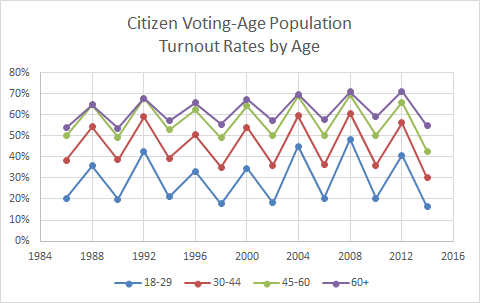I’ll stipulate to this – ACA needs major fixing. See below, and multiple past posts, for my take on what’s needed. Unfortunately that doesn’t look likely. The internecine warfare among Republicans over the American Health Care Act was inevitable, and will not be easily resolved.
That’s because there’s no consensus among Congressional Republicans on what healthcare reform should look like, who should pay for it, or what the priorities should be – access, coverage, cost control, less government intrusion, lower taxes, budget deficits are all in play, and many conflict. There’s also palpable and well-justified fear of the conservative infrastructure, a force including media outlets, think tanks, consultants, donors, and fringe groups that is extremely vocal, very powerful, and critical to the political future of individual Republicans.
Outside the reliably Republican world there is even more danger lurking.
What’s not being reported is this – If AHCA passes, the Republicans are in deep trouble. 10 – 15 million Americans will lose coverage (and loss aversion is powerful indeed). Insurers will drop out of many markets overnight. Hospitals, especially in rural America, will get crushed due to lower reimbursement and higher bad debt. Trump voters who believed him when he said he’s lower costs and improve insurance are going to be disappointed indeed. Deficits will go up.
Thus Republicans are in a can’t win situation; they have to deliver on impossible campaign promises, and if they do, voters will blame them for loss of coverage, higher prices, and anything and everything related to healthcare.
While Republicans battle amongst themselves, the medical provider community – AMA, AHA, American Nurses Association – just about every national interest group has come out firmly against AHCA. Insurance companies are warily walking the fence, not willing to provoke a tweetstorm but concerned indeed that AHCA will pass and their risk pools will crater. Seniors are up in arms, outraged that they’d have to pay more (!) for insurance if younger people don’t subsidize their needs.
There is a possible compromise bill, Cassidy Collins does offer some hope as it would likely garner support from both sides of the aisle if it gets any attention – and a lot of modification along the way. But that is a very big “if”.
While all have different and specific issues, the net is this: AHCA will not lower the cost of care, and will increase the number of Americans without health insurance by at least 10 to 15 million people at the outset.
If AHCA passes, that number will inevitably increase as insurers’ risk pools experience worsens when fewer young people enroll, driving up costs for older folks. The death spiral in the individual markets will accelerate until…something happens.
There’s no question ACA needs fixing.
- An excellent start would be to re-fund the risk corridor program killed by Sen Rubio in 2015 when he was able to force thru defunding of risk adjustment in the budget agreement.
- Adding a public option to markets with limited choice would provide an insurance backstop, much like residual markets in workers’ comp.
- Increasing the penalties for failing to carry insurance is another wise step.
- Replacing deductibles with co-insurance requirements would help ensure people could afford the care they need while making sure the high-utilizers think long and hard about their medical care.
- Requiring all to take greater responsibility for personal behaviors that increase health risks should be front and center. Obesity, substance abuse, medication adherence and failure to utilize preventive medicine should all be addressed
The intractable problem is cost. AHCA focuses on insurance markets, subsidies, eligibility, and credits. It does nothing to address what drives cost – the massive waste due to unnecessary care and inflated prices for drugs, services, devices.
What does this mean for you?
AHCA won’t pass, a fate Republicans should be forever grateful for.








